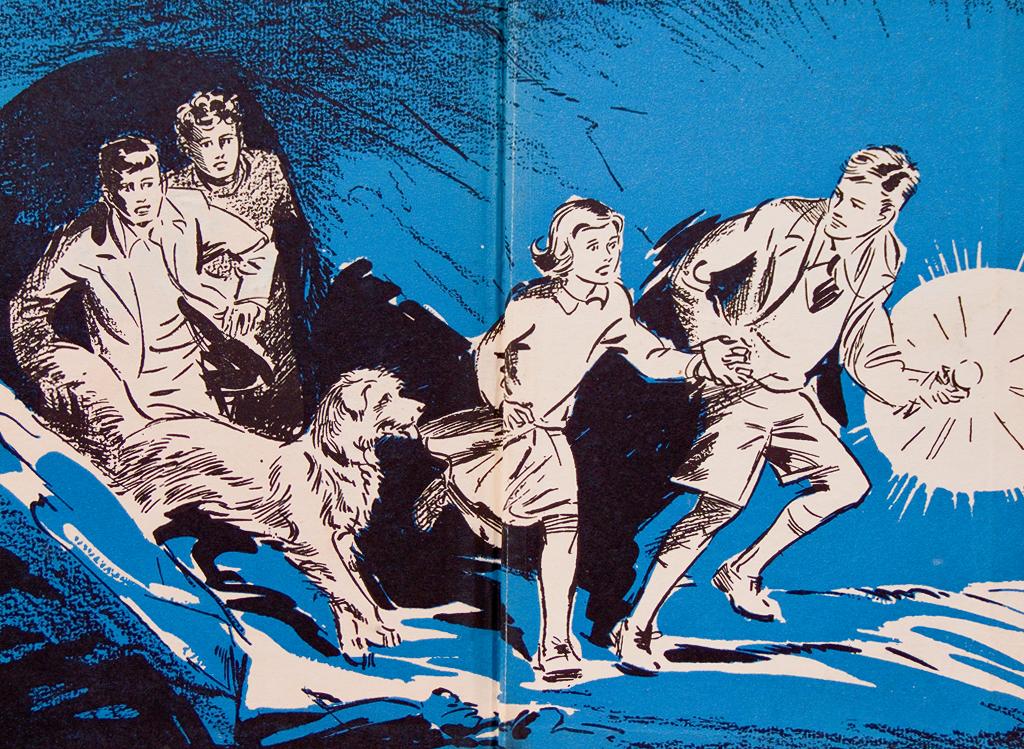Cucumber sandwiches and ginger beer. Castles, caves and caravans. Gooey macaroons. An enchanted forest. And a dog called Timmy.
I’d wanted them all.
As a seven-year-old growing up in a rubber plantation in the southern state of Johor in Peninsular Malaysia, Enid Blyton’s The Famous Five and The Five Find-Outers books were pure escapism. They turned me into a voracious reader, introducing me to people, places and things that were non-native to my corner of the world, but which fired my imagination nonetheless.
But Blyton’s works didn’t always pass muster — especially when dealing with minorities.
‘Racist, xenophobic and lacking literary merit’
On Thursday, English Heritage, a cultural foundation that commemorates famous British personalities by attaching blue plaques on buildings to mark their homes or workspaces, updated its online information associated with Blyton’s plaque.
“Blyton’s work has been criticised during her lifetime and after for its racism, xenophobia and lack of literary merit,” the foundation’s website states, citing a 1966 report by The Guardian newspaper that explored Blyton’s book The Little Black Doll, where the character of Sambo is accepted once its “ugly black face” is washed “clean” by the rain.
While maintaining that “her work still played a vital role in encouraging a generation of children to read,” the website stated that the revision aims “to provide a fuller picture of each person’s life, including aspects that people may find troubling.”
Reassessing the legacy of past authors
Jungle Book author Rudyard Kipling’s entry also now mentions his “racist and imperialist sentiments.”
However, both authors’ plaques will not be removed.
Also read: Should Enid Blyton Books Be Shelved for Good?
This move is part of English Heritage’s efforts in the wake of last year’s Black Lives Matter movement to better reflect “the values or perspectives of people today.”
To cancel or not to cancel
Unsurprisingly, Blyton’s name trended on Twitter as many weighed in on the news.
Some shared the cover of one of her books, The Three Golliwogs, to underscore her xenophobia. In the original edition, two of the three bore names that were racial slurs.
Later editions, of which I own a copy, renamed the three to Wiggie, Waggie and Wollie.
Today, it can be argued that the seemingly hilarious misadventures caused by their identical looks belies a lazy, superficial stereotyping of ethnic groups.
Acknowledging that parts of Blyton’s writing would be deemed bigoted today, New Zealand born journalist and broadcaster Dan Wooton commented in the Mail Online, “When it comes to Blyton, it was particularly telling that English Heritage sneeringly referred to a ‘lack of literary merit’ in her work. Who matters more? Snobby literary types or the hundreds of millions who have lovingly consumed her work without any idea of Blyton’s dodgy personal views?”
Meanwhile, James Wong, an ethnobotanist who presents the BBC’s Grow Your Own Drugs program, asked on Twitter whether “it’s the fury that matters and not the actual issues?”
“I can absolutely get how change can feel uncomfortable to some. I can even empathise how pointing out inequality can be interpreted by some people as an attack on their identity,” but he also asks why people are suddenly so angry about it today, “as if it’s hot off the press?” — after all, as he points out, the discussion surrounding racist elements in Blyton’s works has been around for at least three decades.
This article first appeared on Deutsche Welle. Read the original here.
Featured image credit: Flickr

